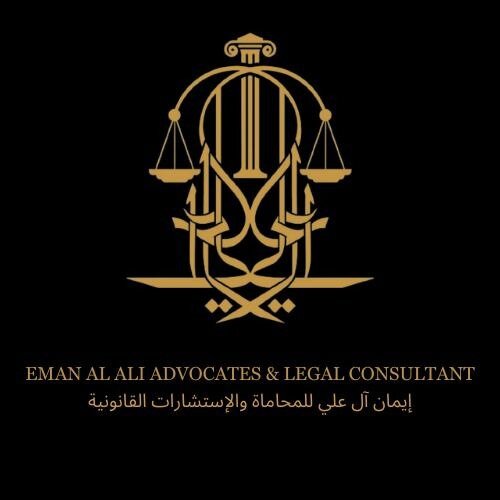Best Tax Increment Financing Lawyers in Dubai
Share your needs with us, get contacted by law firms.
Free. Takes 2 min.
List of the best lawyers in Dubai, United Arab Emirates
About Tax Increment Financing Law in Dubai, United Arab Emirates
Tax Increment Financing (TIF) in Dubai, United Arab Emirates, is a developmental financing tool primarily used to promote economic development within designated areas. The concept involves capturing the future tax benefits that arise from incremental increases in property value due to the development and using these funds to finance the improvements or infrastructure required for such developments. In Dubai, TIF is gradually gaining traction as a means to stimulate urban redevelopment and infrastructural advancements. It allows the city to leverage its resources without immediately raising taxes, attracting private investors to take part in urban growth initiatives.
Why You May Need a Lawyer
There are various situations where legal support may be necessary when dealing with Tax Increment Financing in Dubai. Here are some of the common instances:
- Navigating Legal Complexities: Understanding the intricate legal framework around TIF can be challenging, necessitating a lawyer’s expertise.
- Contract Drafting and Negotiation: Lawyers assist in preparing and negotiating contracts with stakeholders such as developers, investors, and municipal authorities.
- Regulatory Compliance: Ensuring compliance with local laws and regulations pertaining to TIF is critical, and legal counsel can help you stay compliant.
- Dispute Resolution: In cases where disputes arise between parties involved-such as financing disagreements or contractual issues-a lawyer can mediate or represent in litigation.
- Risk Assessment: Evaluating the financial and legal risks associated with TIF projects requires proficient legal insight.
Local Laws Overview
Dubai's legal framework for Tax Increment Financing involves several key laws and regulations. Some important aspects include:
- Municipal Law: Governs the powers and responsibilities of local authorities in initiating and approving TIF projects.
- Investment Promotion: Regulations aimed at promoting investment through favorable terms within TIF districts.
- Land Use Planning: Zoning laws and land use plans can affect TIF allocations and project planning.
- Public Finance Management: Legal stipulations on how projected taxes or increments are calculated and allocated for finance purposes.
- Public-Private Partnerships: Frameworks for collaborations between government and private sector players in TIF projects.
Frequently Asked Questions
What is the purpose of Tax Increment Financing in Dubai?
The primary purpose is to facilitate economic development and urban renewal in specific areas by using projected increases in property taxes to finance infrastructure improvements.
Who benefits from TIF projects?
Various parties benefit, including local governments, developers, businesses within the TIF area, and the community through improved amenities and economic opportunities.
How is a Tax Increment Finance district established in Dubai?
It often involves designating an area for development by municipal authorities, followed by approval processes to ensure compliance with legal and financial prerequisites.
Are there any risks associated with TIF projects?
Yes, risks can include over-forecasting incremental tax revenue, affecting general city budgets, and potential disputes among stakeholders.
What kind of developments can TIF finance in Dubai?
TIF can be used for a wide range of projects, including infrastructure improvements, public facilities, housing developments, and more.
How is TIF different from other forms of public financing?
Unlike other forms of financing, TIF relies on future tax revenue increases instead of current taxation or borrowing against current funds.
Can residents object to TIF proposals?
Yes, public consultations and opinion-seeking phases typically occur where community feedback can shape the proposal before final approval.
What laws govern the implementation of TIF in Dubai?
Primarily, municipal laws, investment promotion laws, and public finance management regulations.
What happens if a TIF project does not generate the expected incremental revenue?
Contingency plans often need to be in place, possibly involving renegotiations, alternative financing, or state interventions.
Who oversees the implementation and progress of TIF projects?
Oversight is usually conducted by municipal authorities, sometimes in conjunction with state economic development agencies.
Additional Resources
For further information or legal guidance, consider reaching out to the following resources:
- The Dubai Department of Economic Development (DED): Provides guidance on investment and development regulations.
- Dubai Municipality: Offers information on zoning, land use, and urban planning regulations.
- Licensed Law Firms in Dubai: For direct legal representation and advice.
- Dubai Land Department: Insight and regulations regarding property and land within Dubai.
Next Steps
If you require legal assistance in Tax Increment Financing, consider taking these steps:
- Conduct Initial Research: Understand the basics of TIF and identify your specific needs or concerns.
- Engage with a Lawyer: Seek qualified legal professionals specializing in TIF or real estate financing for personalized advice.
- Attend Consultations: Meet with prospective lawyers to discuss your situation and evaluate their expertise.
- Review Documentation: Gather all relevant documents, contracts, and proposals for your lawyer’s review.
- Explore Legal Strategies: Work closely to develop strategies that align with your goals and comply with local regulations.
Lawzana helps you find the best lawyers and law firms in Dubai through a curated and pre-screened list of qualified legal professionals. Our platform offers rankings and detailed profiles of attorneys and law firms, allowing you to compare based on practice areas, including Tax Increment Financing, experience, and client feedback.
Each profile includes a description of the firm's areas of practice, client reviews, team members and partners, year of establishment, spoken languages, office locations, contact information, social media presence, and any published articles or resources. Most firms on our platform speak English and are experienced in both local and international legal matters.
Get a quote from top-rated law firms in Dubai, United Arab Emirates — quickly, securely, and without unnecessary hassle.
Disclaimer:
The information provided on this page is for general informational purposes only and does not constitute legal advice. While we strive to ensure the accuracy and relevance of the content, legal information may change over time, and interpretations of the law can vary. You should always consult with a qualified legal professional for advice specific to your situation.
We disclaim all liability for actions taken or not taken based on the content of this page. If you believe any information is incorrect or outdated, please contact us, and we will review and update it where appropriate.

















